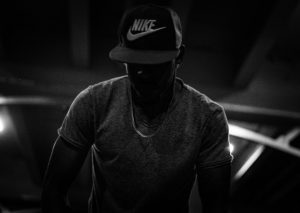
I always loved helping my dad in the kitchen. Maybe it was because those moments were always the times he was home.
Saturday mornings were my favorite. He would always make brunch for the whole family.As a young child, my favorite thing was to imitate Daddy and help him. It was his hands that guided mine as I flipped my first pancake. He taught me how to crack eggs into a bowl for him to scramble later. All the while he patiently listened to my never-ending chatter as I set the table for the feast he had made. Together, we experimented and planned. Together, we made every Saturday breakfast a memorable experience.
I remember watching him. One day he began putting together the most diverse concoction I had ever seen. I watched mustard, pickle juice, and cottage cheese go into the bowl of eggs. After adding a couple seasonings and whisking the mixture vigorously, Dad poured everything onto a hot griddle. I watched through the glass lid as the egg mixture rose. I toasted the bagels. Daddy made the bacon and the sausage on large pans in the oven. We put mayonnaise on the bagels together. Then Dad cut the egg mixture into squares.
I watched in awe: this was a new creation and I was involved. Carefully we layered eggs, bacon, and sausage on the bagels. After adding a slice of cheese, the sandwiches were ready. Proudly, I carried them to the table. It was the best breakfast we had ever eaten. Something about the egg concoction mixed with bagels and cheese felt like the best soul food we could wish for.
From then on, we begged every Saturday for “daddy’s sandwiches”. We had brunches and invited people over. Every time we went to the store, we bought bagels. It became our family tradition.
Fast forward a few years. The day was rainy and cold. But not as dark and dreary as my future. My daddy had passed away suddenly a couple nights before. It was Saturday morning again. And I knew there was one thing I had to do.
Slowly I got the bagels out. Crying, I mixed up the eggs. I knew how. I had done it a dozen times before. I put the pans of bacon and sausage in the oven, alone. And alone, I put together sandwiches for each of my siblings.
I sat down, but I couldn’t eat. Not today. These weren’t daddy’s sandwiches. I had made them without him. The breakfast had become a symbol of his protection. Now that he wasn’t here, how could I ever go on?
But then I looked around, and saw my little siblings. They were watching me. I had to go on. There was no option. “For daddy,” I whispered and took a deep breath.
That first bite held all the memories of a life that felt so far away. Right then, I was with my daddy again. His hand folded over mine again, teaching me how to cook. His voice encouraged me, and his eyes smiled down as once more, I ventured into a new path with his help. Right then I realized I could go on. It was then that I knew, whatever happened, I could live again. Through a sandwich, I found that the people you love never leave you.
It’s just up to you to see that.









